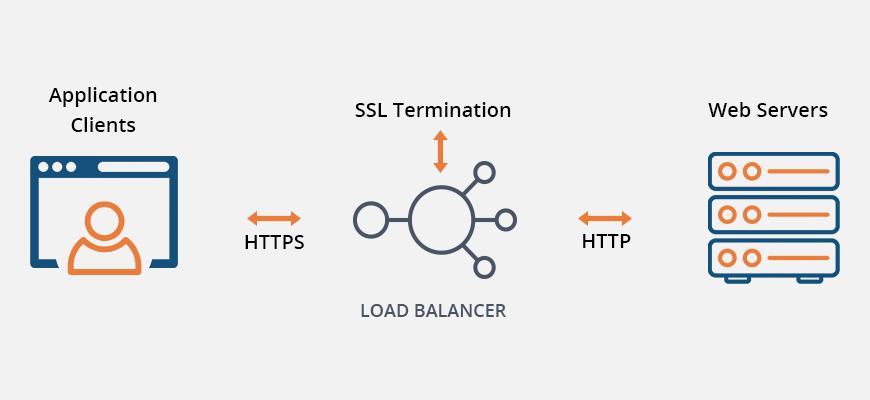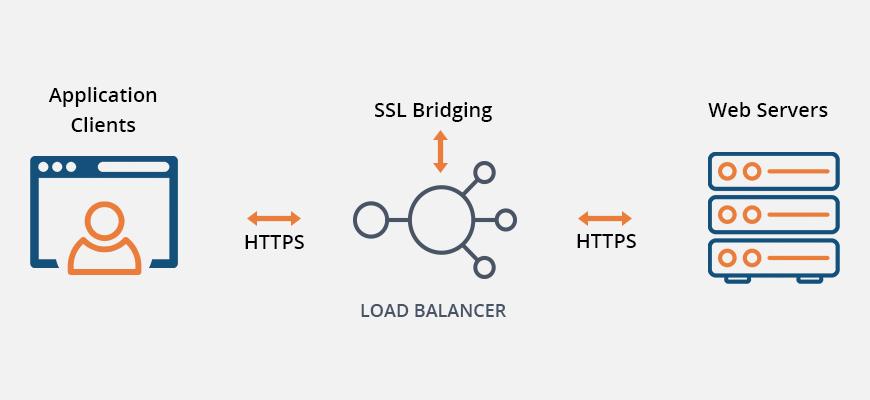SSL offloading is taking care of SSL process on a separate device so that it doesn’t affect the web server’s performance.
Encryption often requires a lot of computer processing. That can be a drag on already busy web servers. But what if you could separate the intense processing of encryption from the heavy workload involved in sending and receiving web page traffic? That’s the primary purpose of SSL offloading.
What Is SSL Offloading?
When information transmitted through SSL secure protocol, web server takes action to encrypt and/or decrypt your web traffic. This process assigns a substantial load on the web server which will affecting on performance of web server.
To deal with the added burden of encrypting data on the server, many networks now employ SSL offloading. This network solution involves the removal of SSL encryption from incoming traffic before it reaches the web server. SSL offloading is taking care of SSL process on a separate device so that it doesn’t affect the web server’s performance.
How Does SSL Offloading Work?
The idea behind SSL offloading is to do the work of encryption anywhere besides on the web server. That could mean a totally separate machine, or the offloading could be handled on a different processing device on the same machine. In short, SSL offloading is specially designed to perform SSL acceleration or SSL termination.
Benefits of SSL Offloading
Think of all the processing required to encrypt data. Encryption is CPU-intensive operation. It means that any computer dealing with encryption can become bogged down. Have you noticed how sometimes your laptop or smartphone browser really slows down when you are transacting business online? That’s because SSL increases the workload. Let’s look at some excellent benefits of SSL offloading.
- Boost the page load speed time.
- Faster response from the Web server.
- Better web server performance.
- Enhance the stability of website.
- Auto-scaling the web servers during the peak hours of traffic.
- Use as a load balancer for serving web traffic using different servers.
Any owner of a website that handles a lot of encrypted data should consider SSL offloading. It is a way of freeing up web servers so that they can focus on their primary tasks.
One way to handle SSL offloading is through something called SSL acceleration. This is a solution that uses application specific integrated circuits (ASIC) to process encryption. These are special, dedicated hardware components that may be used to alleviate the workload of on-board CPUs.
Types of SSL Offloading
There are two main forms of SSL offloading.
SSL Termination
The process of SSL termination is fairly simple. Data first goes to a device that encrypts or decrypts information – depending on which direction the data is traveling.
Any encrypted data that comes toward the web server, for instance, is processed at this device and then forwarded on to the web server without encryption. This type of offloading is the quickest and most efficient form.
SSL Bridging
The purpose of SSL bridging is to perform extra checks on the data to ensure that there is no malware included. The process includes decrypting the incoming data, inspecting it for any malicious code, and then re-encrypting it and sending it on to the web server.
Obviously, this form of offloading is meant to increase security rather than relieve the web server of processing activities.
Ensuring that data remains secure can be costly in terms of infrastructure investment and processing power. SSL offloading can alleviate the workload for busy web servers. It can also be used to provide greater security to ward off malicious attacks. SSL offloading is another great tool for the network manager’s toolkit.


